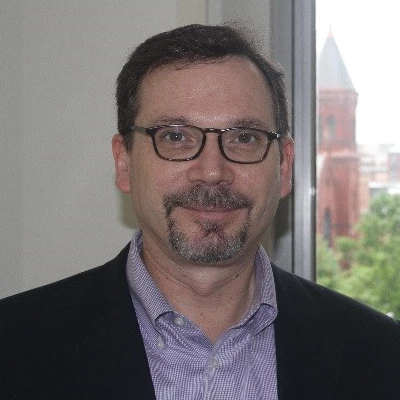 If you go to a conference on cities and climate change, you inevitably hear the statement that “countries talk…but cities act”. This message was loud and clear at the C40 Cities Climate Leadership Summit in Johannesburg last month, where a new report released by the C40 and ARUP detailed the 8000+ initiatives that C40 member cities are undertaking to either reduce GHG emissions or increase their climate resilience. Since the first such report came out in 2011, more cities are reporting on their efforts, and those reporting are doing ever more, expanding the array of initiatives they have launched.
If you go to a conference on cities and climate change, you inevitably hear the statement that “countries talk…but cities act”. This message was loud and clear at the C40 Cities Climate Leadership Summit in Johannesburg last month, where a new report released by the C40 and ARUP detailed the 8000+ initiatives that C40 member cities are undertaking to either reduce GHG emissions or increase their climate resilience. Since the first such report came out in 2011, more cities are reporting on their efforts, and those reporting are doing ever more, expanding the array of initiatives they have launched.
The Johannesburg summit was where Rio de Janeiro Mayor Eduardo Paes assumed the chairmanship of the C40 network, the first time a mayor from the global south has held this role. This portends big things both for the C40 itself (which despite the name, now includes 66 cities, including new members Cape Town, Nairobi, and Dar es Salaam), and for the role the C40 can play in inspiring action in other fast-growing cities in Asia, Latin America, and Africa.
This summit made clear that cities are gaining newfound prominence in the UN-led climate policy process. Former NYC Mayor (and former C40 chair) Michael Bloomberg made news before the summit started with the announcement he had been appointed UN Special Envoy for Cities and Climate Change. Christiana Figueres, head of the UNFCCC, was also in Joburg, participating in session after session and emphasizing that the needs of cities were explicitly being considered in this year’s global climate negotiations. Dr. Joan Clos, head of UN-Habitat, provided the scientific justification for this policy shift, talking about global urbanization trends and the need to get ahead of the urbanization growth curve with proper land use planning and other climate planning initiatives.
 The UN summit on climate change, scheduled to be held in New York in late September, was on the minds of many speakers and audience members. Dr. Andrew Steer from WRI said we need to think big, suggesting that the September summit should aim to recruit 1000 cities committed to preparing a comprehensive greenhouse gas inventory using the GPC, the new gold standard for calculating city-scale emissions. (Considering that last summer World Bank staff found that fewer than 200 cities globally had prepared this type of comprehensive inventory, it would indeed be an extraordinary – and absolutely necessary – accomplishment.)
The UN summit on climate change, scheduled to be held in New York in late September, was on the minds of many speakers and audience members. Dr. Andrew Steer from WRI said we need to think big, suggesting that the September summit should aim to recruit 1000 cities committed to preparing a comprehensive greenhouse gas inventory using the GPC, the new gold standard for calculating city-scale emissions. (Considering that last summer World Bank staff found that fewer than 200 cities globally had prepared this type of comprehensive inventory, it would indeed be an extraordinary – and absolutely necessary – accomplishment.)
The World Bank’s own efforts supporting city-scale action on climate change attracted considerable attention. UNFCCC chief Christiana Figueres touted the impact the Bank’s city creditworthiness workshops will ultimately have in helping cities pay for both low carbon and climate resilient infrastructure investments. Bank staff attending the conference were pleased at the level of interest in the creditworthiness workshops scheduled for this year, along with some of the other financing and technical assistance initiatives being incubated by the Bank’s Task Force to Catalyze Climate Action. The ESMAP team’s new City Energy Efficiency Transformation Initiative (CEETI) also attracted considerable attention, with its promise of technical assistance and research support for cities interested in cutting energy demand, energy-related emissions, and operating costs.
 My own visit to Joburg ended with a bicycle tour of the Soweto townships on the edge of Johannesburg. Although tremendous gains have been made in the past 20+ years, there is still much work to be done to alleviate the deprivation that pervades many neighborhoods there. That visit stirred many emotions, but it also highlighted the logic of the Bank’s growing work program on climate change, reminding us that past gains in the global fight against extreme poverty are very fragile. Failure to act now on climate change now could mean these gains are undone, putting millions of promising futures at risk.
My own visit to Joburg ended with a bicycle tour of the Soweto townships on the edge of Johannesburg. Although tremendous gains have been made in the past 20+ years, there is still much work to be done to alleviate the deprivation that pervades many neighborhoods there. That visit stirred many emotions, but it also highlighted the logic of the Bank’s growing work program on climate change, reminding us that past gains in the global fight against extreme poverty are very fragile. Failure to act now on climate change now could mean these gains are undone, putting millions of promising futures at risk.
Photos: Stephen Hammer / World Bank


Join the Conversation